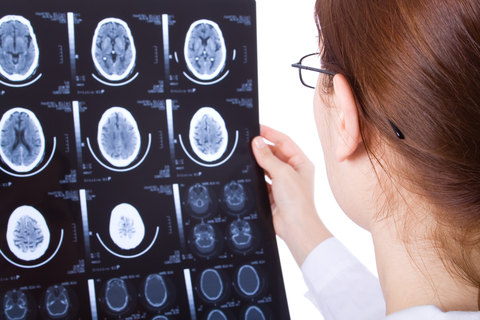Revolution in the understanding of depression

For the first time scientists around the world, with leading contributions from the UK’s world class centres of psychiatric genetics research, largely funded by the Medical Research Council, at Cardiff University, the University of Edinburgh and King’s College London, have been able to combine DNA data on a large enough sample to pinpoint which locations on the genome are associated with an increased risk of depression.
The findings are published in Nature Genetics.
The Guardian reports researchers now know, with a high degree of confidence, that there are at least forty four genes, out of the twenty thousand genes comprising the human genome, which contribute to the transmission of risk for depression from one generation to the next.
If someone’s parents have been depressed, the chances that they will have been or will become depressed are significantly increased. The background risk of depression in the general population is about one in four, but if someone’s parents have been depressed the risk jumps by a factor of three.
However, controversy has long swirled around the question of nature or nurture. In the twentieth century psychiatrists found that pairs of identical twins, with 100% identical DNA, were more likely to have similar experiences of depression than pairs of non-identical twins, with 50% identical DNA. This indicated clearly that depression is genetically heritable. But well into the twenty first century the precise identity of the “genes for depression” remained obscure. Since 2000 there has been a sustained international research effort to discover these genes, but the field has been bedevilled by false dawns and inconsistent results. That is why the study published last week is such a significant milestone.
However, this raises at least as many issues as it resolves. There are many risk genes, each of which contributes a small amount of risk. Realistically everyone will have inherited some of the genes for depression and their chances of becoming depressed will depend in part on how many and their cumulative impact. As research continues and even larger samples of DNA become available for analysis, it is likely that the number of genes associated with depression will increase further.
There isn’t a black and white distinction between depressed and healthy people. It is much more likely that people’s complex genetic inheritance puts everyone on a continuous spectrum of risk. Many risk genes are known to play important roles in the biology of the nervous system. This fits with the basic idea that disturbances of the mind must reflect some underlying disturbance of the brain.
More surprisingly, many of the risk genes for depression also play a part in the workings of the immune system. There is growing evidence that inflammation can cause depression. Scientists are also becoming more aware that social stress can cause increased inflammation. For decades it’s been known that social stress is a major risk factor for depression. Now it seems that inflammation could be one of the missing links; stress provokes an inflammatory response by the body, which causes changes in how the brain works, which in turn cause the mental symptoms of depression.
Knowing the risk genes for depression also has important implications for practical treatment. There have been no major advances in treatment for depression since about 1990, despite it being the major single cause of medical disability in the world. There need to be new ways forward therapeutically and new genetics is a great place to start the search for treatments that can cut through more precisely to the cause or mechanism of depression.
Although these genetic discoveries are fundamental, they don’t prove that depression is “all in the brain” or that psychological treatment is pointless. The genetics will be biologically pre-eminent but, as scientists understand more about what all these “genes for depression” do, they may discover that many of them control the response of the brain or the body to environmental stress. In which case, the treatment that works best for an individual could be a drug targeting a gene or intervention targeting an environmental factor such as stress.








